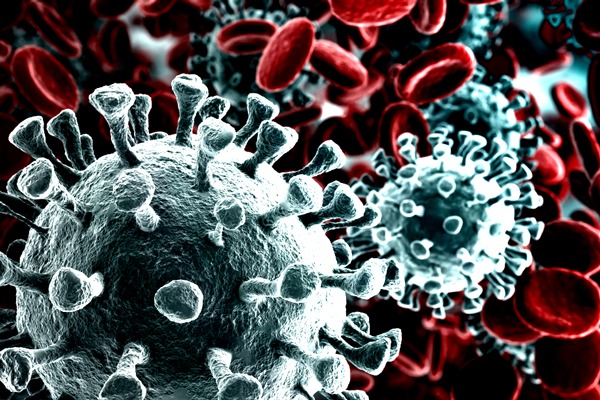
BY TAPIWA GOMO
It is more than a year since the world ground to a halt due to the COVID-19 pandemic. In the last 12 months, there has been shifts and adjustments to measures to address the pandemic and the opening up of economies.
This allowed production and livelihoods to resume and save the world from the potential devastating effects of the pandemic such as starvation and destitution. So far, this calculated and gradual easing of the COVID-19 preventive measures is proving useful and a reasonable balance between slowing down the spread while increasing production.
However, the pendulum has massively swung towards vaccination, building on numerous assumptions. The most common assumption is that vaccines will improve people’s immunity against the coronavirus.
For that reason, there are massive global campaigns to roll out vaccination, technically implying that everyone needs to be vaccinated. This is an ambitious project amid growing concerns that even after one receives a COVID-19 vaccine, they still should mask up and maintain physical distance as they can still be infected or infect others.
Big money is now driving the campaigns and fast becoming the central magic bullet, suggesting that with money, vaccines will act like a gun firing preventive bullets to a helpless population. This is undermining the mere fact that the most effective and recommended preventive measures which include social distancing, wearing a face mask in public, ventilation and air-filtering, hand washing, covering one’s mouth when sneezing or coughing, disinfecting surfaces, and monitoring and self-isolation for people exposed or symptomatic require less money and are much more sustainable.
In his column to the Project Syndicate, Jeffrey D Sachs, University Professor at Columbia University, wrote on April 6, 2021 that: “A new allocation of up to $650 billion worth of the International Monetary Fund’s reserve asset will ensure that governments in low-income and middle-income countries have the means to combat the COVID-19 pandemic and start on the path of investment-led recovery. We must seize this critical opportunity to co-operate effectively for the sake of humanity.”
In Sachs’ postulation, this funding will support mass vaccination which is required to end the pandemic. Even when economies are starting to pick up with the easing of COVID-19 prevention restrictions, he insists that as long as “COVID-19 persists at high rates of transmission anywhere in the world, the pandemic will continue to disrupt global production, trade, and travel, and will also give rise to viral mutations that threaten to undermine previously acquired immunity from past infections and vaccinations.”
- Chamisa under fire over US$120K donation
- Mavhunga puts DeMbare into Chibuku quarterfinals
- Pension funds bet on Cabora Bassa oilfields
- Councils defy govt fire tender directive
Keep Reading
While the risk remains, all indications are that the world has passed its worst compared with the same time last year.
Sachs is a well-known expert on sustainable development, economic development, and the fight against poverty, but his approaches to addressing challenges such as poverty have been widely criticised for being neoliberal, Eurocentric and money-driven. This means that he rarely sees a solution in the absence of funding that largely comes from the Bretton Wood Institutions and major economies.
His “‘more money is equal to less problem” laboratory-like approaches have on numerous occasions proven to be ineffective and one of the reasons Africa, despite the many billions of dollars received, is yet to catch up with its Western and Asian counterparts.
There are loads of literature explaining why the money approach to development problems has not been effective. First, the most effective solution to widespread challenges such as the current pandemic or poverty have to be local and people-driven approaches. Current evidence suggests that countries that have dealt with the pandemic better than others such as Taiwan, New Zealand, Iceland, Singapore, Vietnam and others are not the most vaccinated, neither do they have massive vaccination plans.
Key to their success stories were local initiatives such as tightening social distancing, masking up, practising good hygiene, testing, quarantining and self-isolation. Home-grown and less capital intense measures carried the day for these countries and yet Sachs thinks money is everything to address the pandemic.
Second, money is liquid and attracts conflicted interests. Most countries, largely in Africa, are currently grappling with COVID-19 funding-related corruption cases. It is the new cash cow in town. Once governments are aware of available funding, they halt everything in anticipation, while on the sidelines the corrupt hyenas lurk around waiting to siphon the funds. Ordinary people will suffer the most as their governments relax preventive measures in anticipation of the vaccines or the funding, most of which will leak through corruption, depriving them of both prevention and vaccination.
The real challenges here are not the rampant corruption and that the money will not reach the people. But both governments, and the people’s ability to foster domestic and local approaches to respond to the pandemic will be deeply vitiated by these funding side-shows. Poor governments and their people will be deprived of political will and commitment as witnessed in the countries listed above.
History in poverty reduction has taught us that money-driven and Eurocentric approaches to development do not work and have the effect of weakening the societies they seek to strengthen. Instead, they promote corruption. Africa is a good example of that.
The recent growth in economies in Asia and the Middle East have also taught us that money is not always needed to address development challenges, but ideas, local commitment and political will by the leadership. From the five countries listed above, we also learn that while the vaccine offers hope, it is still local initiatives that have helped to curb the spread of the pandemic than capital intensive vaccination campaigns.
- Tapiwa Gomo is a development consultant based in Pretoria, South Africa. He writes here in his personal capacity.











